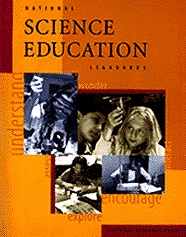EI and the National Standards
The
contemporary movement for science education reform calls for the teaching of
science to more closely reflect the way in which science is practiced. According
to the National Science Education Standards, the central strategy for teaching
science should be to engage students in authentic inquiry or research:
Students at all grade levels and in every domain of science should have the
opportunity to use scientific inquiry and develop the ability to think and
act in ways associated with the processes of inquiry, including asking questions,
planning and conducting an investigation, using appropriate tools and techniques,
thinking critically and logically about the relationships between evidence
and explanations, constructing and analyzing alternative explanations, and
communicating scientific arguments1.
The Science as Inquiry standards call for all students to
develop the following abilities:
- Identify questions and concepts that guide scientific
investigations
- Design and conduct scientific investigations
- Use
technology and mathematics to improve investigations and communications
- Formulate
and revise scientific explanations and models using logic and evidence
- Recognize
and analyze alternative explanations and models
- Communicate and defend
a scientific argument2
Using a stepwise approach, EI research helps students gain
all of these abilities as they design and carry out investigations, exchange
ideas about their results and interpretations with peer student scientists,
and make recommendations for future experiments. A progression of downloadable
forms guides students through each step of the inquiry process, providing
structure but flexibility in designing and conducting meaningful projects.
Students engaged in EI investigations also will learn concepts
and skills covered in other standards, including Science in Personal and
Social Perspectives, History and Nature of Science, Science and
Technology, and Life Science.
1. National
Research Council. 1996. National Science Education Standards. National Academy
Press, Washington, D.C., p. 105.
2. National Science Education Standards, pp. 175-6.
|

